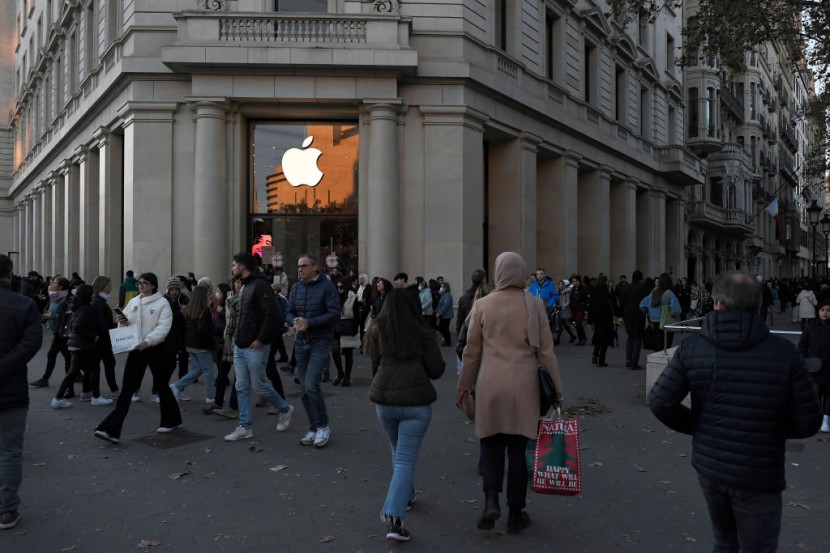
Apple Inc's market capitalization fell dramatically on Tuesday, extending its decline from the previous year and putting it on course to finish below $2 trillion for the first time since March 2021.
The sale occurs one year after the iPhone manufacturer became the first firm to surpass a market capitalization of $3 trillion.
Apple Stock Value
According to Refinitiv Eikon, Apple's stock slid 4% to $124.60 after Exane BNP Paribas analyst Jerome Ramel downgraded the business to "neutral" from "outperform" and lowered his price target to $140 from $180.
Ramel reduced his iPhone shipping goals for fiscal 2023 from 245 million units to 224 million units as a result of supply chain concerns with Foxconn and customers' reduced spending on high-end phones. At the current stock price, Apple is worth $1.98 trillion, surpassing Microsoft Corp, which is worth $1.78 trillion, as per Al Jazeera.
According to Refinitiv, analysts estimate the Cupertino, California-based business to announce a 1 percent decline in December-quarter sales in the coming weeks, highlighting investors' concerns that a sluggish global economy and soaring inflation may be affecting demand for Apple gadgets. This would be the first quarterly revenue loss for Apple since the March 2019 quarter.
Kim Forrest of Bokeh Capital Partners stated, "They (Apple) prefer to cater to high-end consumer device customers, but even this demographic may be influenced by the high price of everything."
High-priced equities were abandoned by investors fearful of increasing interest rates during last year's sharp sell-off on Wall Street, which hurt tech heavyweights. Apple, Microsoft, Amazon.com Inc, Alphabet Inc, and Meta Platforms make for around 18 percent of the S&P 500, down from as much as 24 percent in 2020.
Apple's long-term stockholders have received great returns despite the stock's 27 percent decline in the past year. Those who purchased and held Apple shares when co-founder Steve Jobs introduced the iPhone in 2007 have realized a return of more than 4,000 percent, excluding dividends, compared to the S&P 500's return of 180 percent during the same time period.
Apple, like other tech companies, has struggled with supply chain issues and economic fears, which might affect advertising and consumer spending, notably on more expensive goods like the iPhone.
iPhone 14 Models Experience Lesser Shipments Due to COVID-19
Apple reported "high demand" for the iPhone 14 Pro and iPhone 14 Pro Max models ahead of the crucial holiday shopping season, but predicted lesser shipments than anticipated owing to COVID-related difficulties at a Chinese supplier. It is currently stated that these operations are operating at virtually full capacity, according to CNN.
While Apple's market value has decreased significantly, other large technology businesses have experienced proportionally sharper reductions. In the past year, shares of Amazon and Facebook's parent company Meta have declined by around 50% and 63%, respectively.
Apple, for an instance, is down almost 31% within the same time frame. Murata Manufacturing Co., an additional Apple supplier, expects the tech giant to lower iPhone 14 manufacturing plans in the coming months. Per Telegraph via MSN, Norio Nakajima, president of Murata, stated, "Based on handset availability in retailers, I anticipate a negative revision. I hope that it won't be too deep."
Nikkei reported on Monday that Apple has instructed many suppliers to produce fewer components for some products, including AirPods, the Apple Watch, and MacBooks, due to a decline in demand.
December was the worst month for Apple since May 2019 with a 12pc fall, exceeding the 9pc decline for the tech-heavy Nasdaq 100 Stock Index over the same period. In 2022, the market capitalization of the four major US technology businesses fell by more than $3 trillion due to surging inflation and a slowdown in sales growth caused by the pandemic.
Related Article: Addictive TikTok Described as China's 'Digital Fentanyl' for Americans, Says New US Exec
@YouTube








